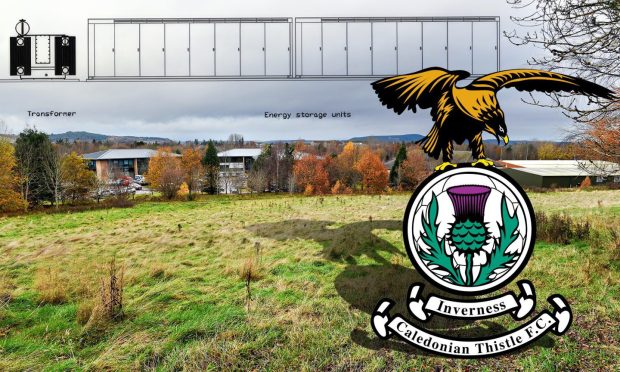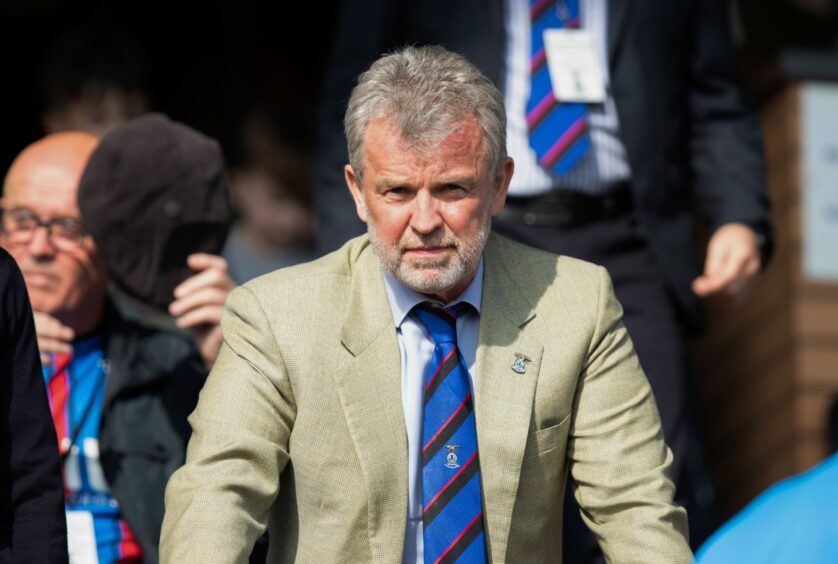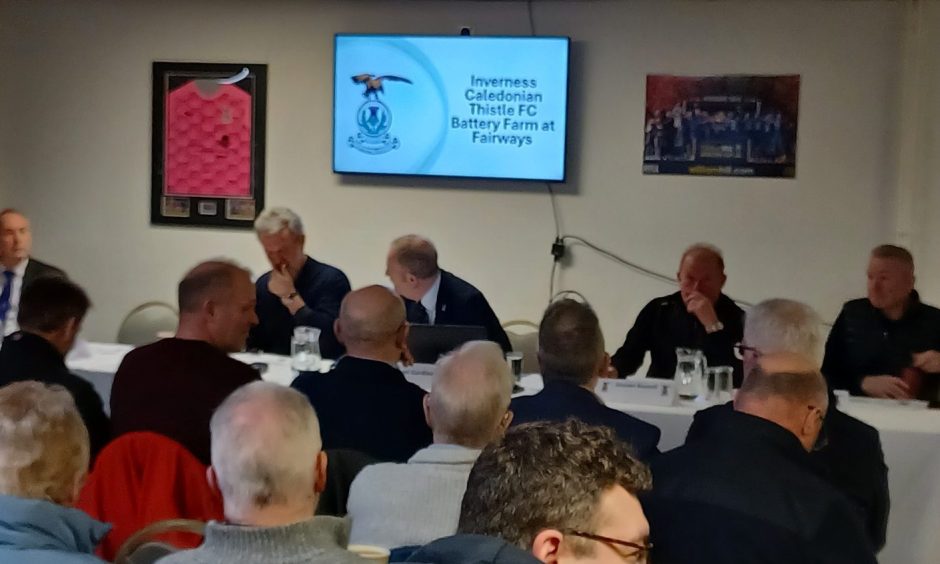Caley Thistle have lodged a last-ditch appeal to overturn Highland Council’s decision to reject its multi-million pound battery farm project.
The club’s proposal would have landed them a £3.4m windfall and helped them avoid the turmoil they now find themselves in.
The application was mired in controversy after it was initially approved by the council’s south planning applications committee in February.
But only five of the 15-strong committee voted when it came to a decision.
A notice of amendment for the full council to revisit the decision was raised by Nairn councillor Paul Oldham.
In April, the battery farm project was then rejected by a margin of 30 votes to 23.
The decision prompted an angry response from Caley Thistle, whose chief executive Scot Gardiner vowed to appeal the decision.
And that appeal has now finally been lodged with the Scottish Government’s planning department.
The battery farm background
A lot has changed on and off the field since the proposal was rejected in April.
The Caley Jags were relegated to League One after losing in the play-offs to Hamilton.
It is the first time since 2000 that the club has been in Scotland’s third tier.
A controversial decision to move the club’s training base to Kelty followed and created a huge backlash that saw supporters vowing to boycott matches.
Ultimately, it forced the resignation of chairman Ross Morrison and Scot Gardiner, although the latter is still in post while working his notice.
Fans were also left bewildered at the lack of information coming from the Caledonian Stadium as long-serving players left without any acknowledgment.
Scottish Cup winner Aaron Doran even said that he’d been left in limbo without vital knee surgery.
A crowdfunder from ex-teammates and fans eventually stepped in to save the day.
In that context, fans were unsure whether the appeal would still go forward.
The situation also gets a bit muddy as the appeal is being lodged by a company called ICT Battery Storage.
Although Ross Morrison is no longer involved with Caley Thistle, he is still the director of ICT Battery Storage.
What are Caley Thistle’s grounds of appeal?
The club has appointed Inverness firm Ness Planning to handle the appeal.
Highland Council’s planners recommended that the application be rejected throughout the process.
Planning manager David Mudie previously told the planning committee that approving it would result in a loss of green and amenity space.
But in a statement sent to the Scottish Government by Ness Planning, it describes the area earmarked for the battery storage as “an area of rough ground of no particular biodiversity value”.
A lengthy 15-page document from Ness Planning outlines the situation, focusing on the earlier decision to grant the proposal and the fact that objections were not raised initially raised locally.
It adds that although it does not comply with every policy of the council’s local development plan, the policies that it does comply with must be considered.
The statement reads: “The assessment must determine the proposal against the whole plan and the weight to be attached to each policy.
“The proposed development meets the overarching policy intent and supports the Scottish Government’s strategy of delivering strategic renewable electricity generation and transmission infrastructure.
“It will contribute to the fundamental objective of achieving a net zero economy and supports improved network resilience.
“We respectfully request that the reporter uphold the appeal and the application be granted planning permission.”
What happens next?
Highland Council has 21 days to issue its response to the appeal.
Once the Scottish Government’s appeals division is satisfied it has all the information it needs, a reporter will either uphold the council’s decision to reject the battery farm or overturn it and grant planning permission.
The decision will have a huge bearing on the future of Caley Thistle and its immediate prospects in League One.



Conversation